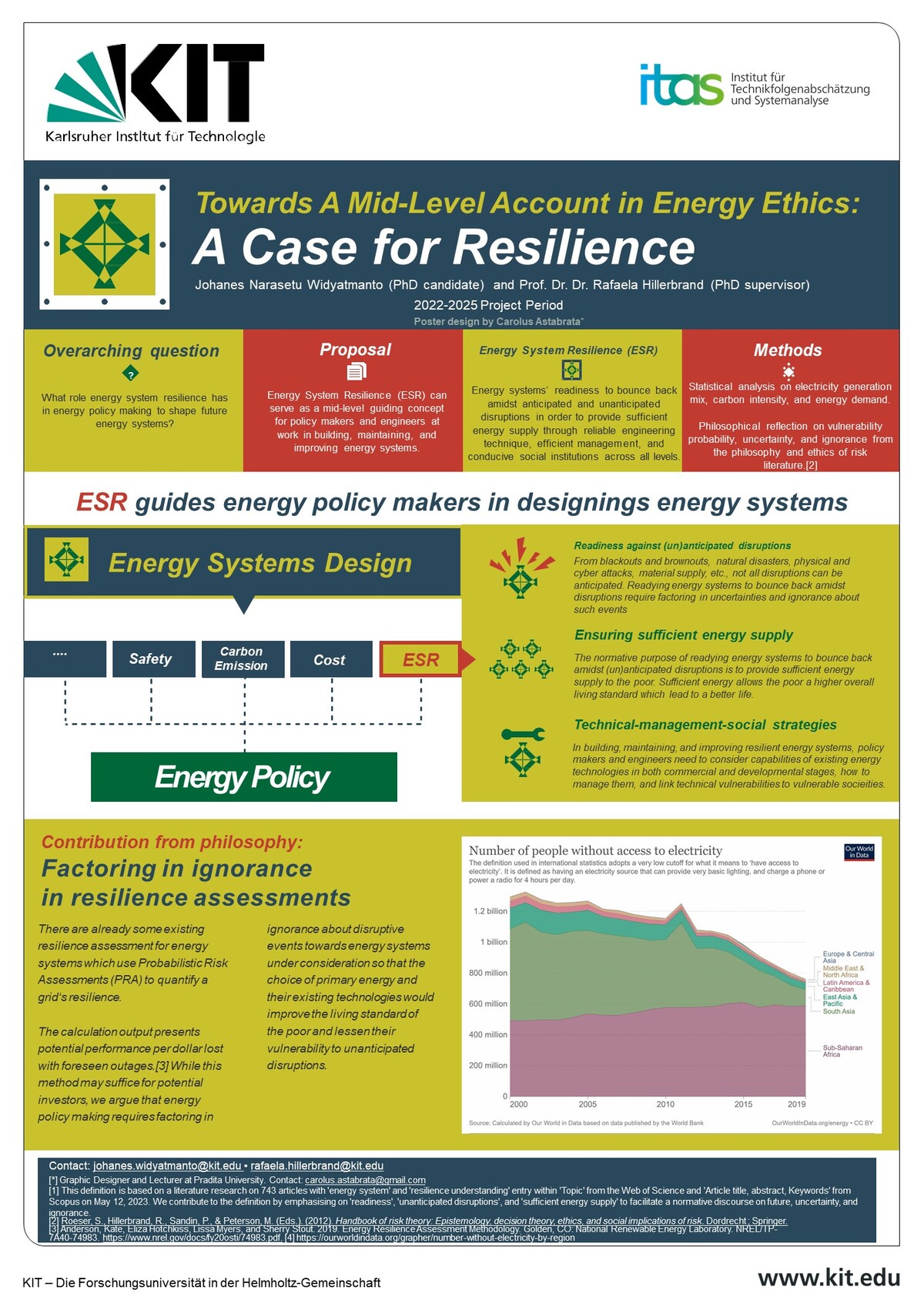Conceptualizing Resilience in Sociotechnical Energy Systems
- Project team:
Widyatmanto, Johanes Narasetu (Dissertation)
- Start date:
2022
- End date:
2025
- Research group:
Philosophy of Engineering, Technology Assessment, and Science
Project description
The cumulative dissertation addresses an emerging concept in energy engineering, namely resilience. Resilience, broadly understood as the ability to bounce back from disruptions, is originally a working term used primarily in psychology. The impetus for its widespread recognition in engineering was provided by ecologist C.S. Holling, who introduced the notion of resilience into environmental engineering. Building on this, the concept of “ecological resilience” or “environmental resilience” was developed (Holling, 1973, 1996).
In the field of energy systems, resilience, specifically the resilience of energy systems, has been intensively discussed by engineers as both an evaluation concept and an evaluation approach. The so-called “resilience approach” is used to evaluate how well an energy system can withstand, absorb, and recover from various external influences such as natural disasters. Some key engineering topics related to energy system resilience are disruptions, vulnerabilities, and robustness. The importance of the resilience approach for energy systems is underlined by reports and studies of various organizations such as Acatech or the European Parliamentary Research Service.
However, the concept has been little discussed by philosophers, particularly those interested in the intersection between ethics and energy. Be it as an approach or as a working concept in energy engineering, resilience seems to be a desirable property of an energy system, and its moral significance is not questioned. The challenge now is to examine under what conditions resilience as a property of an energy system is also morally desirable. I aim to understand the normative significance of energy system resilience and the resilience approach by applying existing moral theories to existing resilience strategies and concepts in engineering.
To find out whether resilience of energy systems is morally desirable or not, I will first consider various components of resilience proposed by energy engineers, such as robustness, absorptive capacity, bounce-back ability, and so on. I will then place different engineering strategies for achieving resilience with its components in a concrete social, political, and economic context, such as public acceptance (social), international cooperation (political), and national energy demand (economic). Finally, I will apply relevant ethical concepts to the various contexts of energy system resilience.
Examining the moral significance of energy system resilience is intended to help provide engineers and interested researchers with a deeper understanding of the resilience approach in energy engineering.
Administrative data
| Supervisor: | Prof. Dr. Dr. Rafaela Hillerbrand |
| Advisor: | Dr. Eike Düvel |
| Doctoral students at ITAS: | see Doctoral studies at ITAS |
Contact
Karlsruhe Institute of Technology (KIT)
Institute for Technology Assessment and Systems Analysis (ITAS)
P.O. Box 3640
76021 Karlsruhe
Germany
Tel.: +49 721 608-26774
E-mail


